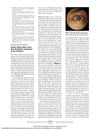TLDR Using a diode laser for hair removal without eye protection can cause serious eye injuries.
This case report highlights the risks of retinal injuries from diode laser epilation, particularly when performed by untrained individuals without proper protective eyewear. A 30-year-old woman experienced impaired vision in her right eye after a diode laser epilation accident. Examination revealed a retinal burn, and despite treatment with topical corticosteroids, her visual acuity only partially improved. The report underscores the importance of practitioner training and adherence to safety protocols, including the use of protective eyewear, to prevent irreversible ocular damage during laser epilation procedures.
143 citations
,
January 2013 in “Dermatologic surgery” In-office laser hair removal works well long-term, especially Nd:YAG for darker skin, but home devices need more testing.
 31 citations
,
October 2012 in “Archives of ophthalmology”
31 citations
,
October 2012 in “Archives of ophthalmology” Laser hair reduction near the eyebrows can cause serious eye injuries even with safety measures.
 5 citations
,
January 2023 in “Journal of the European Academy of Dermatology and Venereology”
5 citations
,
January 2023 in “Journal of the European Academy of Dermatology and Venereology” Experts advise using sunscreen and proper skin care before, during, and after procedures to speed healing, prevent complications, and reduce scarring.
 195 citations
,
January 2008 in “Photochemistry and Photobiology”
195 citations
,
January 2008 in “Photochemistry and Photobiology” Visible light can damage skin and most sunscreens don't block it well; more research is needed on its effects and protection methods.
February 2009 in “Journal of the American Academy of Dermatology” 33 citations
,
October 2016 in “Photomedicine and laser surgery” Future clinical uses of Intense Pulsed Light (IPL) are likely to grow and become more effective with new advancements and combined treatments.
 14 citations
,
May 2011 in “Facial Plastic Surgery Clinics of North America”
14 citations
,
May 2011 in “Facial Plastic Surgery Clinics of North America” Laser hair removal is effective for dark hair but needs improvement for nonpigmented or fine hairs.




